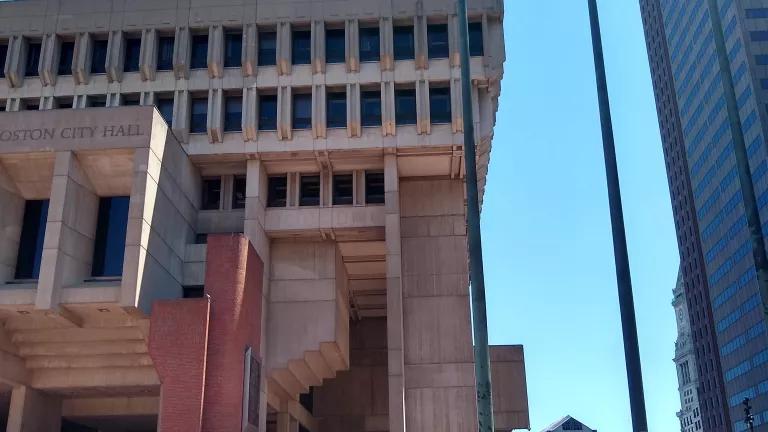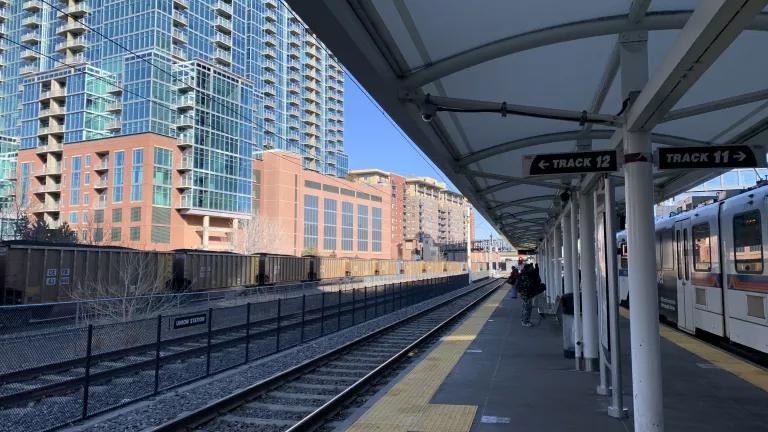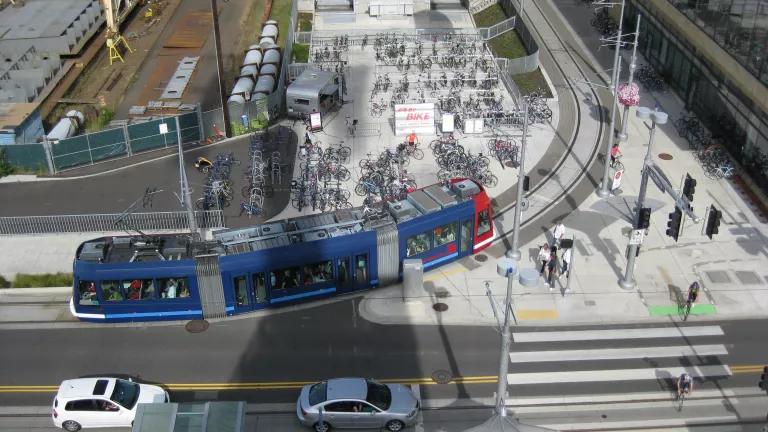Boston Pilots Cargo E-Bike for City Fleet

Bike riding has skyrocketed as a safe way to move through a city amidst a global pandemic. Bicycles are great ways to get around—they offer exercise and rarely require you to sit in traffic plus, it’s easy to maintain physical distance and ensure there’s good air flow. Navigating city streets on a bike while balancing a projector, a box of flyers, bright orange construction cones, post-it notes and markers, and a tablecloth—and trying not to break a sweat on the way to a meeting can be daunting. That’s why Boston has procured their first municipally owned electric-assist cargo trike for the city’s fleet.
The trike will be named Knox in honor of Kittie Knox, a West End resident from the 1880s, who broke gender and racial stereotypes in Boston's cycling community. She was a member of the main Black cycling club in the area, over in Cambridge, named Riverside Cycling Club, as well as a member of the national League of American Wheelmen, which she joined in 1893. On August 20th, the City hosted a virtual naming ceremony to dub the newest mobility option in the city.
The virtual naming ceremony included an overview of the city’s Climate Action Plan 2019 update, a reminder that Boston is currently hosting an RFI on e-cargo bike delivery solutions, an overview of Kittie Knox’s life, a marking of the 100th anniversary of Suffrage, and a family-friend read-aloud of a part of The Red Bicycle. You can watch a recording of the ceremony here (link to recording).
Boston has an ambitious plan to reduce emissions from municipal sources as outlined in the 2019 Climate Action Plan Update and this tricycle is a step toward adding another zero emissions vehicle for city staff to use. Fuel used to power the City of Boston’s vehicle fleet accounts for 0.5 percent of Boston’s total emissions, and 25 percent of the local government emissions. The new e-cargo trike will help Boston learn about the benefits zero-emission vehicles can bring and show others in the city that bicycles can be a great alternative to cars, including when you have a bunch of things to cart around.
This cargo-ebike is an alternative to an internal combustion engine powered vehicle which will help the city save emissions and money. On average, the trip distance of city employees using the city’s vehicle fleet was 9 miles (for a trip of 8 hours or fewer) between September 2018 and September 2019. We know that short trips taken with zero emissions vehicles reduce emissions. It also encourages overall mode-shifts to more active transportation options.
This multi-departmental prototype is another attempt by the City of Boston to “learn through doing.” The Mayor’s Office of New Urban Mechanics, the city’s civic research and design team, is supporting the Public Works Department, which manages the Central Fleet of city vehicles, and the Environment Department, which oversees Climate Action in the city to “kick the tires” on this cargo e-trike. Some of the civic research questions the city hopes to learn about through this prototype include:
- Are we able to logistically implement and maintain a single cargo e-trike, and what does that tell us about a future world in which Central Fleet contains more e-bikes/e-trikes?
- To what degree do City employees feel aligned with city goals (such as those outlined in Go Boston 2030) when they are using the cargo e-trike?
- How do residents perceive the City’s use of the cargo e-trike to enable employees to attend public meetings for which they are carrying many items?
- Do users (and observers) of the cargo e-trike find it safe, reliable, and fun to use?
- What would it take for the City to envision a cargo bike/cargo trike fleet for employees that residents could also access through a check-out system?
The city is hoping to prove some hypotheses for this prototype, including:
- The trike will yield a reduction of 125 car trips taken by City employees, assuming that 5% of the ~9mi city employee car-trips would convert to the cargo e-trike
- C02 offset of ~460,000g of GHG assuming that those 125 trips otherwise would have been taken by an ICE-powered vehicle, a calculation based off of EPA’s CO2 offset methodology
- Increased employee satisfaction per research showing cycling as the highest “commute well-being score” and physical health benefits associated with cycling
The City of Boston receives support on zero-emissions vehicle deployment as part of the Bloomberg American Cities Climate Challenge, which Boston was named a winner of in October 2019. The cargo tricycle is part of that effort. Boston is in good company with 24 other cities also pursuing strategic ways to reduce their carbon footprints and expand alternative modes of transportation.



